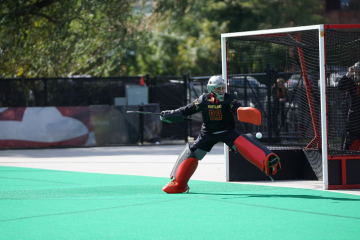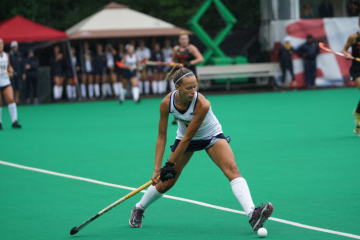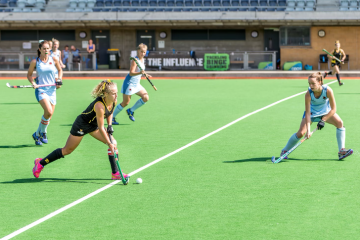Field hockey is a fast-paced, exciting team sport that can provide many benefits for kids. As one of the most popular sports worldwide, field hockey promotes aerobic fitness, hand-eye coordination, and teamwork skills in a fun and engaging way. With its focus on ball control, dodging, and passing using curved sticks, field hockey develops motor skills and cardiovascular health. The sport can be enjoyed recreationally or competitively, with modified rules and equipment making it accessible for children as young as 5 or 6. Introducing field hockey at a young age lays a foundation for potential lifelong involvement in the sport.
Getting Started with Equipment and Basic Rules
One of the first steps in getting kids started with field hockey is obtaining the necessary equipment. Each player needs a stick, mouthguard for protection, shinguards, and appropriate athletic shoes such as turf shoes or cleats. Sticks come in various sizes from mini field hockey sticks for young children up to full-length adult sticks. The length and weight of the stick will depend on the age and size of your child. It’s important to find a stick that allows them to comfortably reach and control the ball. Younger players may start with a stick that comes up to their waist or chest. Older children may progress to a full-length stick that reaches near their shoulder.
Additional gear like gloves, goggles, and goalie equipment can be added later as a child progresses in the sport. It is also important to learn the basic rules of field hockey, including how to score goals, the number of players per team, and how to restart play after violations. Most leagues use modified rules for younger age groups to facilitate skill development. Common rule adjustments include having fewer players on the field, reduced game times, no penalty corners, and not counting own goals scored.
Developing Fundamental Skills Through Drills and Games
Once equipped with gear, kids can start developing the fundamental skills of field hockey through simple drills and games. Coaches and parents can create activities to practice dribbling, passing, receiving, and shooting. Dribbling around cones, playing small-sided games, and trying target shooting on a goalie are engaging ways to sharpen stick handling abilities. As skills improve, more complex drills and scrimmages can focus on positional play and tactics. Maintaining active participation and offering positive reinforcement during practice will go a long way in helping young athletes fall in love with the sport.
Here are some example drills to help build foundation field hockey skills:
| Drill | Description |
|---|---|
| Dribbling | Have players dribble through a series of cones, keeping the ball close control |
| Pass and Receive | Partners stand 10-15 feet apart passing back and forth |
| Target Practice | Shoot at a goalie or target area from varying distances |
| 3v3 Game | Small-sided game helping teach spacing and decision making |
The Benefits of Teamwork and Sportsmanship
One of the great appeals of field hockey for kids is that it is firmly rooted in concepts of teamwork and sportsmanship. Players must work together to move the ball up the field and into the circle to create scoring chances. Kids learn to collaborate, communicate, and motivate one another as a cohesive unit. Good sportsmanship is also emphasized through positive coaching and by modeling respect for teammates, opponents, and officials.
These valuable character lessons help young athletes develop confidence, leadership, and a competitive spirit both on and off the field.
Additional Benefits for Health and Coordination
Beyond fitness and teamwork, field hockey also provides specific benefits related to hand-eye coordination, balance, and reaction time. The constant motion and ball manipulation challenge motor skills. Dribbling a ball while running promotes coordination. Quick passing and receiving hones peripheral vision and responsiveness. Goalies touching high shots develops full body agility. Field hockey is also great for aerobic conditioning with all the running involved. The combination of cardiovascular exercise and fine motor practice makes it an excellent cross-training activity for young athletes.
All in all, field hockey is an excellent way for kids to stay active, advance their motor skills, and learn about team dynamics. With an introduction to the basic equipment, rules, and skills, children as young as 5 or 6 can take part in this fast-paced and engaging sport. Practices and games that focus on skill development through drills and scrimmages in a fun, supportive environment allow young field hockey players to gain confidence. The sport also reinforces the merits of teamwork, communication and good sportsmanship. Field hockey provides an enjoyable platform for fitness, friendships, and learning life lessons that can benefit kids both now and in the future.



0 Comments